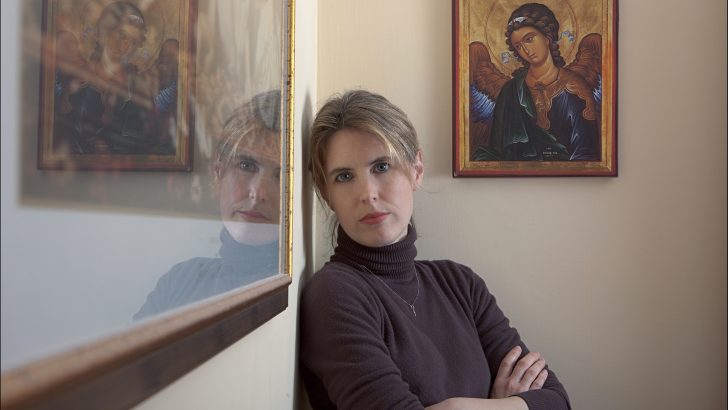Night’s Bright Darkness
by Sally Read (Ignatius Press, £14.99/€18)
It’s hard to resist a good conversion story. They have a ready-made narrative to exploit, one typically filled with twists and turns, and the ending is a happy one. When luminous talent is combined with an already pleasing narrative form, it’s bound to entrance.
That is exactly the case with Night’s Bright Darkness, the autobiographical account of English poet Sally Read’s conversion from militant atheism to Catholicism. Her story resonates deeply with our age and is a reminder that, despite the confusion of modern life, a path can still be found “across the night to reach Him”.
The product of an atheist upbringing in 1970s England, Ms Read refused to believe in God, even though she would have liked him to exist, and was determined to accept the consequences of his absence. But with a vivid turn of phrase, Ms Read describes the alienation of her 20s, working in London as a nurse for the physically and mentally-ill.
Her acute artistic temperament and a desire to seek out the truth meant the restless, muscular English capital didn’t suit her. But it wasn’t then that she turned to the Faith, committing herself instead to her poetry – she was rewarded in 2001 with the Eric Gregory award for poets under 30.
Brought
What, then, brought her to faith? Surprisingly, the catalyst was a book she was researching on female sexuality. This book led her to seek out the advice of a Catholic priest in March 2010. She couldn’t resist, while in contact, asking questions of this man about the Faith and his justification for believing it. Though aggressive at first, it was this initial contact which would lead her, nine months later, to enter into the Catholic Church.
Her conversion could not have happened, however, without her commitment to the quest for truth. Ms Read is blessed with a contemplative mindset, as is often the case with poets. From writing, she was already used to clearing her mind in order to be receptive, effectively to a higher power.
But when she came to pray, she understood that she had to open her entire self to God, to let him enter into her being. Her father had always taught her to kneel before no false God. But she felt driven to kneel before the one true God. She recognised him in prayer as the truth that she had been yearning for in her poetry.
In the book, she writes that the truth peeled away suddenly, and she recognised God as a poet: “It was for communion with God, who knows already, who has the metaphor, the poem, already in hand, who is already writing, has already written, the ultimate poem.”
Poetry
Ms Read found her poetry flourished after her conversion, now that she knew its true source. That flourishing is to our benefit, for though Night’s Bright Darkness is a work of prose, it is written with a fluidity more akin to poetry. A short and pithy book at 157 pages, it is the kind which deserves slow reading; and yet it was all I could do to stop myself finishing it in a matter of hours.
It seems appropriate to end with the poet’s own words, reflecting on the final effect of her conversion: “A self returned to me more fully than before. The heart kick-started to sense its intrinsic architecture of logic, love and reason.” I hope her writings may have that effect on you, as they did with me, kick-starting my appreciation for the love we are so blessed with.


 Ruadhán Jones
Ruadhán Jones English poet and Catholic convert Sally Read
English poet and Catholic convert Sally Read 